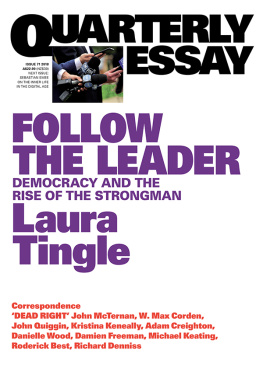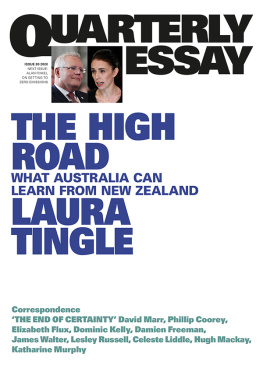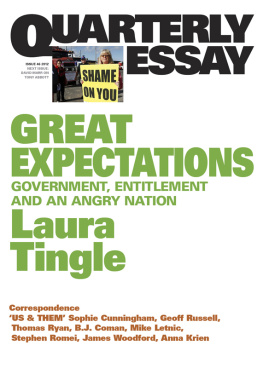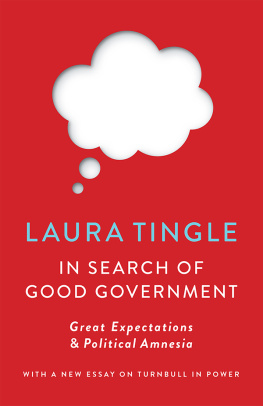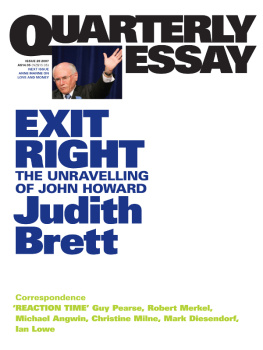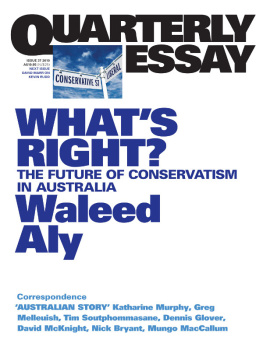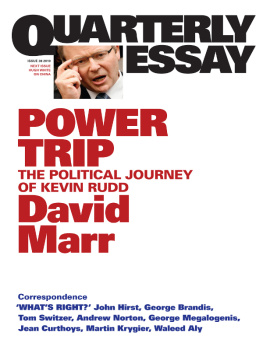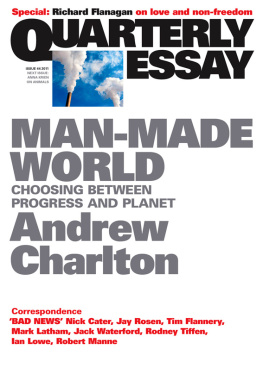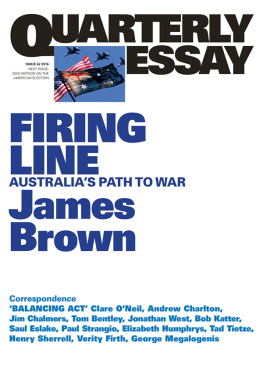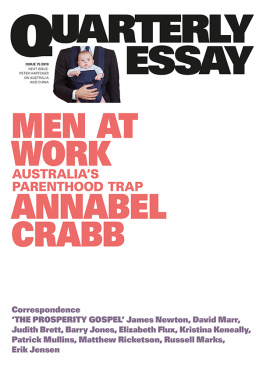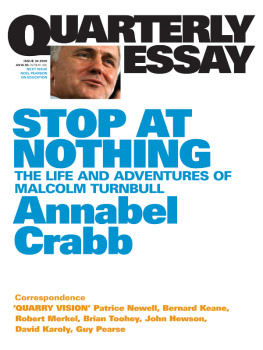Quarterly Essay is published four times a year by Black Inc., an imprint of Schwartz Publishing Pty Ltd. Publisher: Morry Schwartz.
ISBN 978-1-925203-72-1 ISSN 1832-0953
ALL RIGHTS RESERVED.
No part of this publication may be reproduced, stored in a retrieval system, or transmitted in any form by any means electronic, mechanical, photocopying, recording or otherwise without the prior consent of the publishers.
Essay & correspondence retained by the authors.
Subscriptions 1 year print & digital (4 issues): $79.95 within Australia incl. GST. Outside Australia $119.95. 2 years print & digital (8 issues): $129.95 within Australia incl. GST. 1 year digital only: $39.95.
Payment may be made by Mastercard or Visa, or by cheque made out to Schwartz Publishing. Payment includes postage and handling.
To subscribe, fill out and post the subscription card or form inside this issue, or subscribe online:
www.quarterlyessay.com
Phone: 61 3 9486 0288
Correspondence should be addressed to:
The Editor, Quarterly Essay
3739 Langridge Street
Collingwood VIC 3066 Australia
Phone: 61 3 9486 0288 / Fax: 61 3 9486 0244
Email:
Editor: Chris Feik. Management: Sophy Williams,
Caitlin Yates. Publicity: Anna Lensky. Design: Guy
Mirabella. Assistant Editor: Kirstie Innes-Will.
Production Coordinator: Sin Scott-Clash.
POLITICAL AMNESIA | How We Forgot How to Govern |
Laura Tingle |
THE DANGEROUS PAST
June 2015. Clouds are scudding across a pale, bright winter sky on the road from Sydney to Canberra as the fall of the Roman Republic unfolds before me. The small girl I described at the beginning of my 2012 Quarterly Essay, Great Expectations having her picture taken in front of the Pantheon in Rome in 2009 is now sixteen and fretting about a looming Ancient History exam as we travel through a landscape of silvery gums and naked poplar trees.
The collapse of Romes second triumvirate Octavian, Mark Antony and Lepidus and the beginnings of the Empire have featured heavily in our lives over the last few weeks, enriched by reading the sources from which all knowledge of these events has come for the past 2000 years. When after the destruction of Brutus and Cassius there was no longer any army of the Commonwealth, Tacitus (with his wonderful and rhythmic disdain for the full stop) wrote of Octavians rise to become Emperor Augustus:
when Pompeius was crushed in Sicily, and when, with Lepidus pushed aside and Antonius slain, even the Julian faction had only Caesar left to lead it, then, dropping the title of triumvir, and giving out that he was a Consul, and was satisfied with a tribunes authority for the protection of the people, Augustus won over the soldiers with gifts, the populace with cheap corn, and all men with the sweets of repose, and so grew greater by degrees, while he concentrated in himself the functions of the Senate, the magistrates, and the laws. He was wholly unopposed, for the boldest spirits had fallen in battle, or in the proscription, while the remaining nobles, the readier they were to be slaves, were raised the higher by wealth and promotion, so that, aggrandised by revolution, they preferred the safety of the present to the dangerous past.
Tell me the story from the beginning, I say to our daughter, Tosca. Saying it out loud often helps clarify how it all fits together. Tosca starts the story with Julius Caesars birth in 100 BC, punctuates it with teenage idiom and endures my hilarious attempts to cast contemporary politicians and events as players in the drama. Layers and layers of history pile up: the Senate, the Optimates and Populares, the returning legions who have been promised land, the tax collectors, the Rubicon, the marriages, ambition, human weakness, political cunning and intrigue which shape the events that affect the lives of countless people across Romes domains.
All of us know at least something of ancient Rome, whether from a cursory high-school glance, from Shakespeare, from a 1950s Hollywood swords-and-sandals epic or from reading the classics. Likewise, all of us know at least something of our recent political history. The dangerous past of which Tacitus spoke whether it be events two thousand, twenty or even two years ago gives us the conscious, but often unconscious, context for our understanding of contemporary events.
Our first response to an unfolding political episode is often to go to our wardrobe of memories and see whether we can clothe the new incident in one of the dramas of the past, or see how it fits into the pattern of our recollections. Malcolm Turnbulls strike against Tony Abbott in September 2015 was overwhelmingly portrayed in the language and clichs of Julia Gillards coup against Kevin Rudd in 2010. It was a late-night coup. There were faceless men, and Australians were going to bed with one prime minister and waking up with another.
Upon winning government in 2013, Tony Abbott and his colleagues referred back to their memories of the political strategy that worked for Prime Minister John Howard. Bill Shorten and his colleagues all too young to have been close to the workings of the HawkeKeating government conjure up a ghostly memory of policy glory as a backdrop, and in this way stake a claim to credibility for their own policies. Journalists confronting the day-to-day dramas of politics draw comparisons with previous events, whether these be leadership coups or policy brawls.
There are hazards in trying to jam current events into the mould of past experience. We are so busy looking for, or assuming, similarities that we often miss the fact that it is the peculiar differences which most define the present episode. But even more dangerous than a confused and jumbled memory of the past is no memory at all.
This essay is about the role of memory in politics and policy-making in Australia. It is about the dangers of having little, if any, memory of what has gone before. It is about the collapse of the institutions that once formed a safe archive of these memories. I argue that a powerful reason our politics has become not only inane and ugly but dangerous is our growing political and policy amnesia. In Great Expectations I argued that one of the reasons for our national anger was that people no longer knew what they wanted from, or could expect of, government. Our politicians still speak in the language and play to a set of expectations formed at a time when our economy was heavily regulated. Politicians once had the power to set interest rates and the exchange rate, and to protect industries from overseas competition. There were mechanisms in place to set wage rates for the whole country. That all changed with the deregulation of the economy that began in the 1980s. But politics did not. Politicians still promise, or else imply, that they can control events when they cannot. This essay takes a different tack in considering a question that leaves so many of us perplexed: why is our politics unable to deal with the pressing issues of the country? Surely it cannot simply be that the current generation of politicians are a bunch of duds?
Tacitus tells us that the Romans preferred the safety of the present to what he clearly thinks was a better, republican past. Yearning for such a past became a dangerous sentiment when Augustus had concentrated the powers of the state in his own hands, silenced those who had spoken against his rise to power, and bribed the rest with gifts, and cheap corn, and the sweets of repose. It was easier, Tacitus suggests, to forget.


